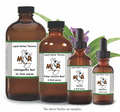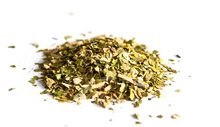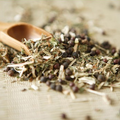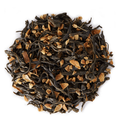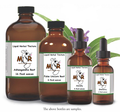 Loading... Please wait...
Loading... Please wait...- Home
- Herbal Teas
- Medicinal Remedy Teas
- Endometriosis Herbal Tea
- Home
- Herbal Teas
- Endometriosis Herbal Tea
- Home
- Herbal Teas
- Teas for Women
- Endometriosis Herbal Tea
Endometriosis Herbal Tea
Product Description
HERBS FOR ENDOMETRIOSIS
In women’s health Infertility is one of the most common complaints given. Thankfully there are many natural remedies that help to reduce symptoms, including specific herbs for endometriosis.
While there are many potential causes of infertility, endometriosis is among the most common. The National Institute of Child Health and Human Development conservatively estimated that 6%-11% of women of reproductive age have endometriosis. And The American Society for Reproductive Medicine estimates that the rates are between 24% and 50% in women struggling with infertility.
Endometriosis involves the presence and growth of endometrial tissue outside of the uterus. While this endometrial tissue can be found in more remote locations, it will most commonly grow within the pelvic area, appearing on the ovaries, fallopian tubes, peritoneum, colon, and bladder. Regardless of its location, all endometrial tissue will proliferate, shed, and bleed with cyclic hormonal changes. When this tissue resides outside of the uterus, it will irritate and inflame the local tissues, often leading to the pain generally associated with the condition.
WHAT ARE THE CAUSES OF ENDOMETRIOSIS?
The cause of endometriosis is yet unknown, though several ideas and theories are under investigation. It is thought that retrograde menstruation may play a part in many cases. Retrograde menstruation involves the flow of blood, menstrual debris, and endometrial cells back through the fallopian tubes and into the pelvic cavity, and may be caused by heavy bleeding or structural anomalies. Surgeries, such as D&Cs and C-Sections, can also cause the displacement of endometrial tissue
While these topics are still under research and debate, some environmental factors do have a corollary relationship with endometriosis. These include endocrine disruption, especially those yielding elevations in levels of estrogens. There is also evidence that oxidative stress and immunologic factors contribute to the pathogenesis of endometriosis.
Additional risk factors include: beginning menstruating before the age of 12; having cycles that are shorter than 28 days; heavier or longer than average periods; poor diet; environmental toxins; and fewer pregnancies.
WHAT ARE THE COMMON SYMPTOMS ASSOCIATED WITH ENDOMETRIOSIS?
Pain and discomfort are among the most troublesome symptoms of endometriosis. This can involve excessive pain during menstruation, during sexual intercourse, or at random times throughout the month. Sometimes the pain manifests as low-back pain; sometimes as irritable bowel pain; and sometimes as a general radiating pain throughout the pelvic region.
THERE ARE 7 HERBS THAT HELP ENDOMETRIOSIS
It’s important to be clear that herbs (and even pharmaceuticals) are unlikely to clear the body of endometriosis once it has been established. As much as I don’t want to say this…at this point, surgery is really the only way to remove troublesome tissue. However, there are a few herbs that may help to minimize the severity of the symptoms.
Cramp Bark – This herb is commonly known (and named) for its use in reducing the severity of menstrual cramps. I can personally attest that this works! When I have menstrual cramps I put some loose herb into a tea-ball and sip on it throughout the day. While this herb is most commonly used for menstrual cramping, it can be used for any pain associated with endometriosis. It is considered to be a uterine tonic, an antispasmodic, and an analgesic herb. It also a nervine so may help temper the emotional swings that can arise with hormone disruption.
Black Haw – This is a close relative of Cramp Bark and some herbalists contend that it is even more effective. It is more astringent than Cramp Bark and is a powerful antispasmodic with a particular affinity for the female reproductive system.
Turmeric– Turmeric is not only an essential ingredient in curry but also relieves endometriosis symptoms. Curcumin is a compound in turmeric that gives the spice its anti-inflammatory and anti-anxiety properties.
Vitex (aka Chaste Tree Berry) – This herb has a long history of use for supporting healthy levels of progesterone. Because elevated estrogens may be associated with endometriosis, it can be helpful to counter hypoestrogenism by helping the body produce sufficient levels of progesterone. Vitex is often used to correct irregular menstruation in women with endometriosis. Depending upon the woman, Vitex may or may not be appropriate and/or beneficial. I always prefer to test the hormone levels before introducing herbs that can influence them.
White Peony – As with Vitex, White Peony can alter hormone levels and may only be appropriate for some women with endometriosis. Once again, I always recommend hormone testing for all women dealing with infertility! White Peony has been shown to support healthy progesterone production, reduce excess androgens, and it can effectively modulate estrogen and prolactin.
Peppermint – The antioxidants in peppermint relax muscle spasms like painful IBS cramping and menstrual pains - both associated with endometriosis.
Ginger – Endometriosis is an inflammatory disease that triggers an imbalance in the immune system. Ginger is an immune booster that strengthens the immune system and reduces inflammation. Ginger has pain-relieving properties like ibuprofen, without the harmful side effects. This herb is a remedy for painful cramps and nausea associated with endometriosis.
This herbal tea includes the herbs listed above.
This blend can also be purchased in an Endometriosis herbal tincture.
Disclaimer - The information presented herein by Mountain Maus’ Remedies is intended for educational purposes only. These statements have not been evaluated by the FDA and are not intended to diagnose, cure, treat or prevent disease. Individual results may vary, and before using any supplements, it is always advisable to consult with your own health care provider.
Information obtained from: http://www.naturalfertilityandwellness.com/herbs-for-endometriosis/








